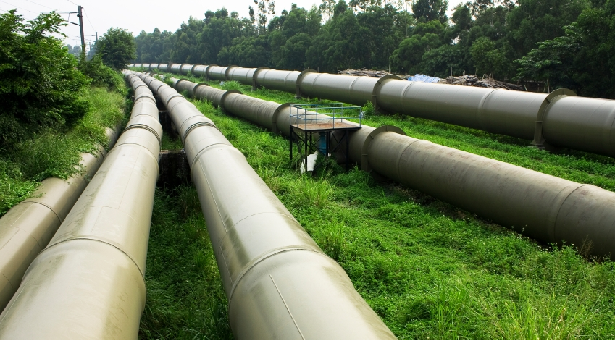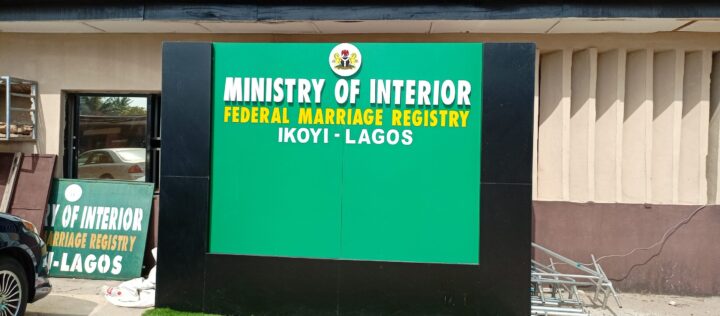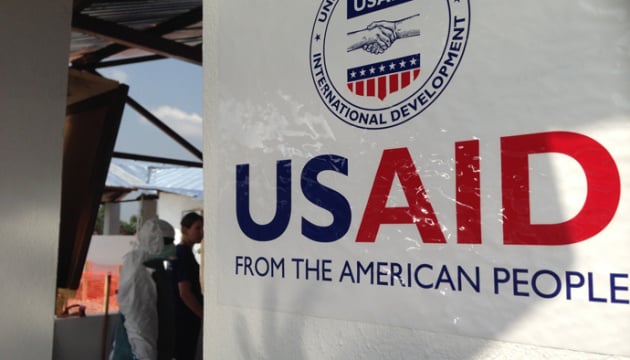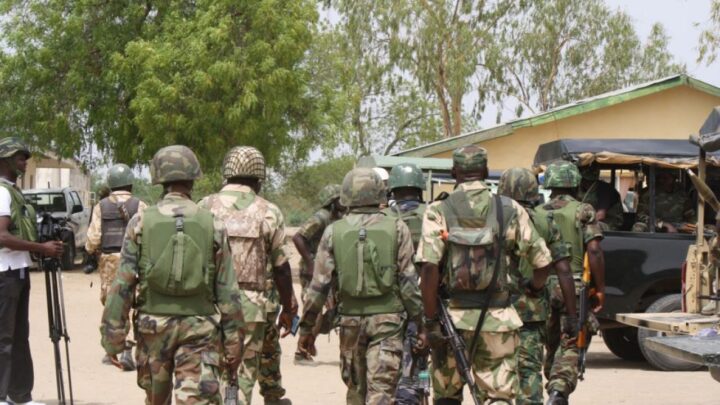Attacks on oil pipelines and product theft continue to be one of the factors responsible for the Nigerian National Petroleum Corporation (NNPC) inability to return profits, by implication, denying the country billions of naira in annual revenues.
Pipelines network is an integral national asset designed to distribute refined products — Premium Motor Spirit (PMS), Dual Purpose Kerosene (DPK) and Automated Gas Oil (AGO) — from the nation’s refineries to all depots.
The network remains the cheapest means of transporting crude oil, petroleum products and gas across the country. Nigeria is said to have about 5,000km of pipeline network for petroleum products transportation and distribution, while natural gas pipelines constitute over 2,800km in length.
But with population growth, the pipelines are now within major settlements, prone to attacks, inaccessible due to encroachment on pipeline right of way (RoW) by buildings, posing challenges for monitoring and protection.
Advertisement
According to a statement on the NNPC website, the movement of crude and white products was done through these pipelines over the years until the act of vandalism rendered pipelines inefficient.
N33.5BN SPENT ON PIPELINE REPAIRS IN 2020
Analyses of the monthly financial and operational records between January 2020 to December 2020 showed that the country lost N33.5 billion in pipeline repairs and management costs for pipe breaks.
Advertisement
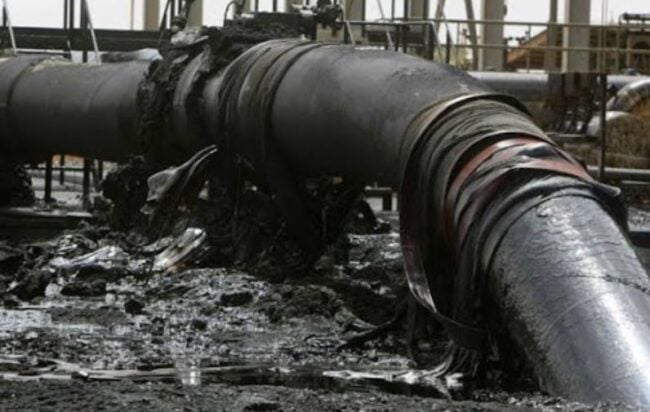
The management of the NNPC usually deducts the amounts from its revenue before final payment is made to the federal account allocation committee.
Further analysis showed that pipeline repairs and management fees gulped between N2 billion and N7 billion monthly.
Apart from reducing revenue accrued to the federation account, NNPC said products theft and vandalism put the corporation in a financially disadvantaged competitive position.
MORE THAN 400 PIPELINE BREAKS RECORDED IN 2020
Advertisement
In 2020, the country witnessed 441 pipeline vandalisation across NNPC lines. The highest was recorded in January 2020 with 60 breaks and the lowest in March with 19 breakpoints. In February, 32 vandals occurred, while 65 happened in April.
In May, June, July, August, a total of 31, 33, 36 and 37 pipeline points were vandalised, respectively. However, it was reduced to 21 in September and 23 breaks by the end of October. In November and December 2020, NNPC recorded a combined 78 pipeline breaks, according to the monthly financial records.
Within the period, pipeline networks in the Mosimi area accounted for more than half of the total vandalised points. Pipelines in Kaduna and Port Harcourt areas accounted for the remaining.
| Months | Pipeline vandals | Pipe repairs (cost N’bn) |
| Jan | 60 | 7,838,671,944 |
| Feb | 32 | 7,997,249,356 |
| Mar | 19 | 6,235,064,928 |
| Apr | 65 | 1,802,241,224 |
| May | 37 | 1,492,339,306 |
| Jun | 33 | 0 |
| Jul | 36 | 4,412,028,282 |
| Aug | 37 | 3,676,025,508 |
| Sep | 21 | 0 |
| Oct | 23 | 0 |
| Nov | 35 | 0 |
| Dec | 43 | 0 |
| Total | 441 | 33,453,620,548 |
THE COST
Advertisement
According to the unaudited financial reports, the trend of sabotage attacks on pipelines cost the nation about N33.5 billion in 2020. Further breakdown showed that the NNPC spent N7.9 billion in January and an approximate N8 billion in February 2020.
In March, NNPC recorded N6.2 billion for pipeline repairs and N1.8 billion and N1.5 billion for April and May. It recorded zero expenses for June, despite 33 vandalised pipes within the period.
Advertisement
In July and August, NNPC spent N4.4 billion and N3.7 billion on pipeline breaks. For the months of September, October, November and December, the state-owned oil firm did not record expenses for pipeline breaks.
IMPACT ON GOVERNMENT’S REVENUE
Advertisement
The N33.5 billion expense on oil installation attacks is equivalent to the combined loss posted by the NNPC group in its 2019 financial statement. In the audited financial statement released last year, the group reported a ₦20.2 billion loss. In 10 years, the group had reported a combined loss of ₦1.55 trillion.
In comparison with other government-owned oil companies, NNPC’s revenue is below par. For example, in 2019, while the NNPC group reported a N20.2 billion (about $56 million) loss, the China National Petroleum Corp (CNPC) posted a $396 billion profit.
Advertisement
Also, Saudi Arabian Oil company (Saudi Aramco) posted a profit of $330 billion, Rosneft Oil Corporation (Rosneft), controlled by the Russian government through Rosneftegaz, posted $140bn profit.
MOVES BY NNPC SO FAR
Speaking at a morning show on the Nigerian Television Authority (NTA), Mele Kyari had said pipeline vandalism is now a full-blown business.
Kyari was responding to the activities of pipeline vandals that torched parts of the corporation’s pipeline network in the Abule Egba area of Lagos State. The nefarious act caused an explosion that claimed the lives and properties of residents.
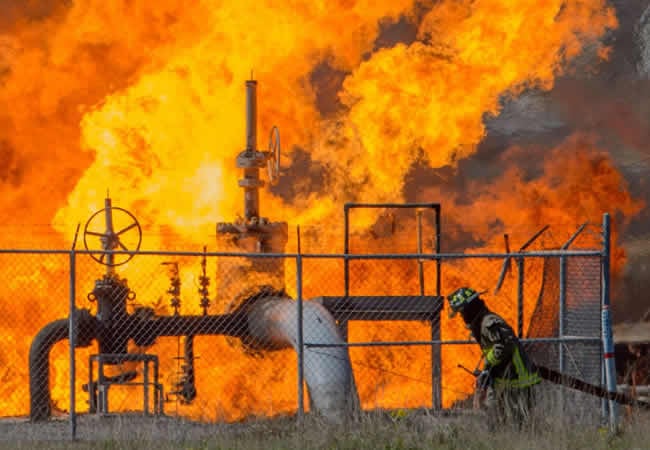
He had said NNPC was collaborating with all security agencies to curb the occurrences of pipeline vandalism across the country.
The GMD, however, said the corporation would deplore Horizontal Directional Drilling Technology (HDDT) as a check to mitigate the incidences of pipeline vandalism.
The technology makes it difficult for the vandals to vandalize the pipelines easily.
To meet the demand for the latest technology in the security of pipelines, upgrade and replace old channels, the NNPC advertised pre-qualification for the critical downstream pipelines and associated depots/terminal infrastructure through finance, build, operate and transfer (BOT) model.
About ninety-six companies expressed interest in the rehabilitation of the downstream infrastructure, including critical pipelines, depots and terminals.
Kennie Obateru, the spokesperson of the NNPC, did not respond to messages seeking an update of the contract and the move to secure pipelines through technologies.
WHAT EXPERTS ARE SAYING
Atiku Samuel, a policy analyst, told TheCable that NNPC needs more robust monitoring stations, enhanced security architecture, and relay some of the old pipeline channels that are now on the surface due to construction or human activities.
“Those pipelines — some are left on the surface because of environmental issues such as erosion — others were not even buried well and human activities have gotten close to some,” Samuel said.
“Most times, not vandalism, those pipelines also need upgrades.
“We need to relay some of those pipelines, especially those within places people can access — so that construction activities will not raze them.
“On security, we need to check the activities of the Nigeria Security and Civil Defence Corps (NSCDC) – their major work is to protect national assets, including pipelines, but now they only secure their bosses and carry bags.”
Samuel said the NNPC also needs to step up its game to monitor pipelines at a workstation – with sophisticated tech, sensors and other latest equipment.
“Introducing more robust monitoring stations and quantifying the cost of relaying oil pipelines to yearly fee on repairs could help.
“These are some of the contemporary issues the government needs to face rather than rolling out funds to agitators for political gains.”
According to Chidi K. C. Izuwah, former director-general of the Infrastructure Concession Regulatory Commission (ICRC), 70 percent of the pipelines owned by NNPC have ‘exceeded their lifespan‘.
In a report, Blessing Ayemhere, chief executive officer of Umugini Pipeline Infrastructure Limited (UPIL), said that to combat vandalism in the oil and gas sector, the nation needs to put multiple strategies to safeguard the pipelines and the products.
Ayemhere called for tracking of pipelines against intrusion and other issues.
Support for this report was provided by the Premium Times Centre for Investigative Journalism (PTCIJ) through its Natural Resource and Extractive Programme
Add a comment
